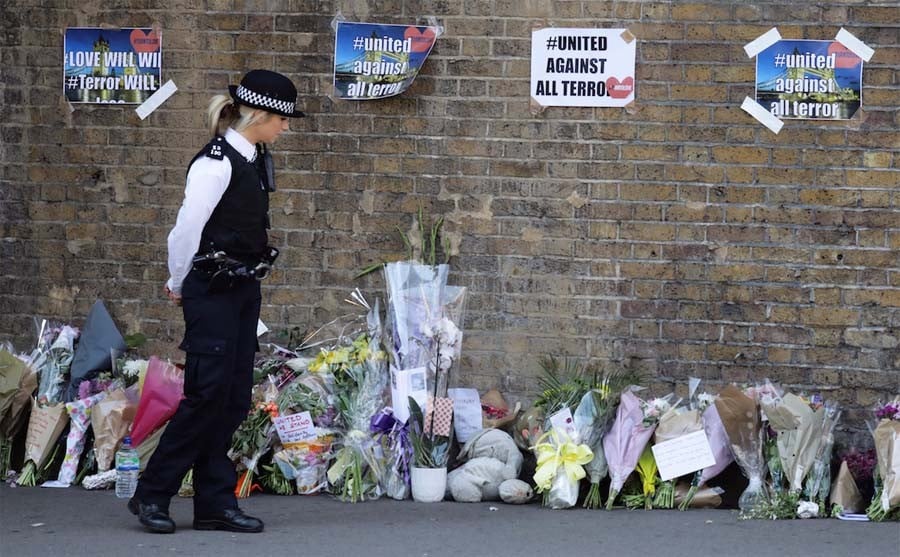
Are only Muslim attackers to be called terrorists?

Dear All,
When a white man, in a white van, drove straight into a crowd of Muslims near a mosque and Islamic Community Centre in North London a week ago, a good chunk of the ensuing coverage in the UK focused on whether or not this should be called a ‘terrorist attack’.
Presumably the reason for this was that the attacker did not subscribe to a religious ideology or record a suicide video in the manner of many jihadi bombers or maybe simply because he did not have a Muslim name (like the Westminster attacker, Kent schoolboy Khalid Masood aka Adrian Russell).
The Times columnist Hugo Rifkind summed it up rather well in his column ‘These terrorists are just murderous weirdos’ when he wrote of the treatment of the Finsbury Park attack story as compared with that of the London Bridge attack in both of which white vans were used as murder weapons "It’s interesting that when the first of these vans was driven deliberately into people, the use of the label [terrorism] was never in doubt. Whereas with the second van, which was also driven apparently deliberately into people, you may have had a moment’s pause before thinking: Yup, terrorism. Just the same. Just the same. No question. That’s what it was." He then follows this with: "This is …. a column about that pause. About whether we should have it at all or whether we should have it more often."
It is ‘this pause’, as Rifkind puts it, that brings home to us the realisation that an attack in which the attacker is Muslim tends to be automatically categorised as terrorism, whereas an attack by a non-Muslim tends to be categorised as a lone wolf attack or the actions of a mentally disturbed person or social delinquent, rather than terrorism. This double standard was revealed and eventually acknowledged in coverage of the Finsbury Park incident. London Police Chief Cressida Dick confirmed unequivocally that the incident was being treated as terrorism, and Prime Minister Theresa May also made clear that "This was an attack on Muslims near their place of worship. And like all terrorism, in whatever form, it shares the same fundamental goal. It seeks to drive us apart; and to break the precious bonds of solidarity and citizenship that we share in this country."
London Mayor Sadiq Khan reiterated this too after the incident in a speech in which he said "terrorism is terrorism" regardless of its ideology. He declared "It doesn’t matter whether you are inspired by a perverse form of Islam or whether you’re inspired by some other motive to try and terrorise others."
It’s been a difficult year for the UK: this attack followed three murderous attacks of which two were in central London. But at least in this instance people realised that attacks by non-Muslim weirdos might be called terrorist attacks as much as attacks by Muslim weirdos.
This approach allows us to look at the attackers as disturbed individuals who are highly susceptible to ideologies and narratives that fuel hatred and encourage violence, rather than as ideologically driven revolutionaries. The overlap of cult psychology with the recruitment of extremists is often ignored in the news narrative that generally surrounds attacks perpetrated by Muslims.
The fact of the matter is that we live in a weird and violent age, where the loneliness and isolation of individuals on the fringes of society can be easily channelised into violence and murder. It’s terrorism and hatred, but not necessarily ideology.
Best wishes,